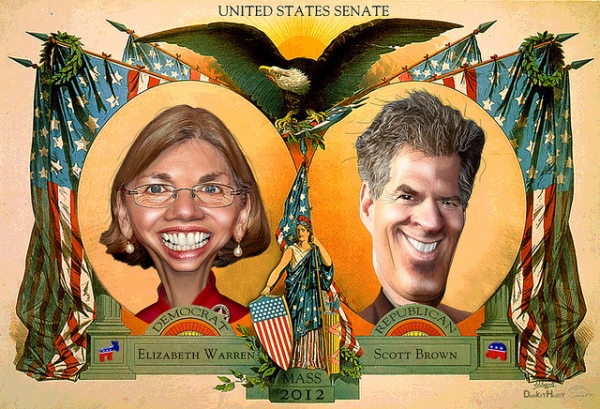 Work-force reductions at The Boston Globe. The end of WFNX as an over-the-air radio station. “Local” news from the Philippines. Possible bankruptcy at GateHouse Media.
Work-force reductions at The Boston Globe. The end of WFNX as an over-the-air radio station. “Local” news from the Philippines. Possible bankruptcy at GateHouse Media.
These were a few of the top 10 Media Nation posts of 2012 as determined by Google Analytics and WordPress’ own internal statistics.
Most people who read Media Nation come in via the home page, which means that any notion of a “top 10” is dubious. Usually it means that a particular post got retweeted a lot on Twitter or was linked to by a popular media website such as JimRomenesko.com.
But the list isn’t entirely without meaning — and one takeaway for me is that Media Nation’s role as an aggregator and a curator may be its most important. I’ll keep that in mind in the year ahead.
Here is my top 10 for 2012.
1. The Boston Globe keeps on shrinking (July 23). Despite some encouraging signs in the form of rising digital-subscription numbers and a continued commitment to first-rate journalism, The Boston Globe, like nearly all daily newspapers, continues to struggle financially. Last summer Media Nation obtained a memo from Globe publisher Christopher Mayer announcing another wave of downsizing at the Globe and its sister paper, the Telegram & Gazette of Worcester.
2. Donna Halper on the future of radio (May 17). Friend of Media Nation Donna Halper was kind enough to write a guest commentary, and her post turned out to be the second most popular of 2012. Halper wrote following an announcement by the Phoenix Media/Communications Group that it would sell WFNX’s broadcast frequency, 101.7 FM, to Clear Channel. Fortunately for local music fans, by the end of 2012 WFNX and the Globe’s RadioBDC were engaged in a spirited competition of online-only local music stations — the real future of radio.
3. Long-distance “local” journalism (July 5). The public radio program “This American Life” and the journalist Anna Tarkov reported extensively on Journatic, which helps community newspapers cuts costs by outsourcing some of their local coverage. At its worst, news was being compiled by underpaid Filipino workers writing under fake bylines. Dubbed “pink slime” journalism by one former practitioner, Journatic underscored what debt-ridden corporate chains will do to survive — and thus demonstrated the importance of independent local journalism.
4. And Joe Scarborough thinks “Morning Joe” is awesome (Jan. 1). A full-page ad in The New York Times for the wretched MSNBC program “Morning Joe” started the gears whirring when I noticed one of its celebrity endorsers was Tom Brokaw. Who, uh, appears on “Morning Joe.” I got to work, and soon found that Politico, which was quoted as praising the program, had an undisclosed partnership. The ad even stooped to using seemingly positive quotes from two reviewers who actually didn’t like it much at all. Disingenuous, to say the least.
5. More bad news for GateHouse Media (March 19). By now it’s not exactly news when executives at GateHouse Media, struggling with $1.2 billion in debt, pay themselves handsome bonuses. (Nor is that unusual at newspaper companies.) In 2012, though, there was a wrinkle at the chain, which owns some 100 community newspapers in Eastern Massachusetts. Jack Sullivan of CommonWealth Magazine paged through the company’s financial disclosures and discovered that officials were openly raising the possibility of a bankruptcy filing.
6. David Gregory debates himself (Oct. 1). The host of “Meet the Press” was brought in to moderate the second televised debate between Republican Sen. Scott Brown and his Democratic opponent, Elizabeth Warren. Unfortunately, it was all about David Gregory. Good thing the candidates were forced to weigh in on whether Bobby Valentine deserved a second year as Red Sox manager. Warren blew the question but won the election.
7. From Newtown, a plea for media restraint (Dec. 17). I republished an open letter from John Voket, associate editor of The Newtown Bee, to his colleagues at the New England Newspaper & Press Association following the massacre at Sandy Hook Elementary School. Voket wrote about “reporters and media crews invading the yards and space of grieving survivors, school staff and responders,” and asked editors “to remind your correspondents that most are still requesting to be left alone.” A heartfelt message from ground zero.
8. Calling foul on politicians who lie (Aug. 30). It would be hard to come up with a more falsehood-laden performance than U.S. Rep. Paul Ryan’s speech at the Republican National Convention. Ryan’s lies prompted me to wonder how far the balance-obsessed media would be willing to go in labeling them for what they were.
9. At CNN, getting it first and getting it wrong (June 28). My instant reaction to CNN’s false report that the U.S. Supreme Court had overturned the individual mandate in the Affordable Care Act. At least CNN executives flogged themselves in the public square. As we later learned, Fox News made the same mistake — and refused to apologize.
10. An unconscionable vote against the disabled (Dec. 5). My reaction to Senate Republicans’ rejection of a United Nations treaty on the rights of the disabled — a treaty modeled after the Americans with Disabilities Act, championed by President George H.W. Bush, a Republican.
Ghosts of 2011. Oddly enough, the single most popular post of 2012 was one I wrote in 2011 — a fairly terse item on Jay Severin’s return to the Boston airwaves, a comeback that proved to be brief. As I wrote last year, I’ve put up several Severin posts that have generated huge traffic, and I have no idea why.




 Coming out of Thursday night’s WBZ-TV (Channel 4)
Coming out of Thursday night’s WBZ-TV (Channel 4)  Like all political junkies, I’m looking forward to
Like all political junkies, I’m looking forward to